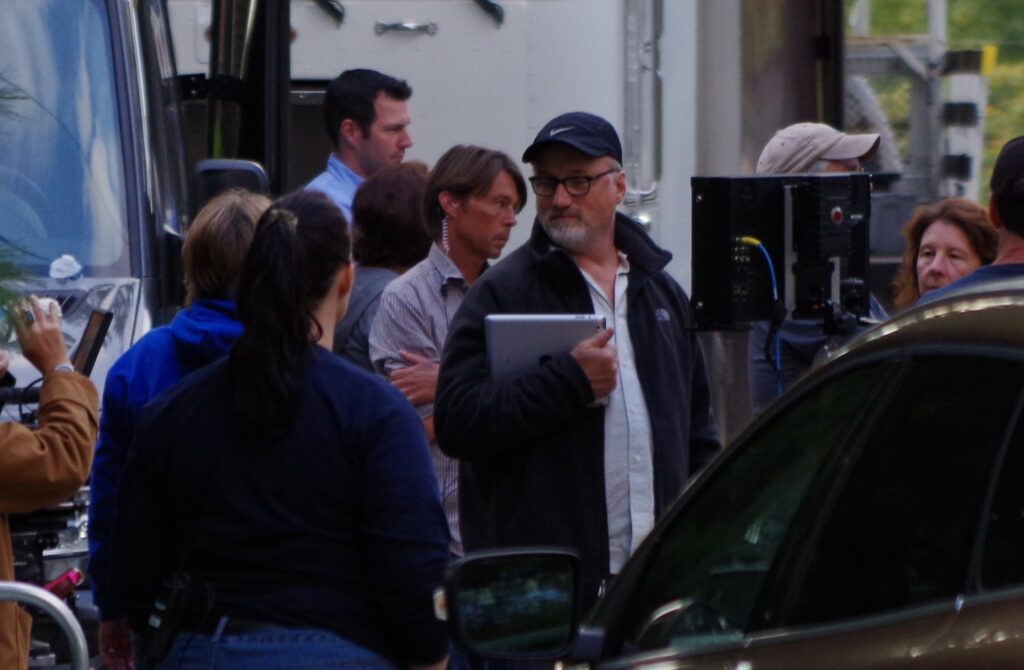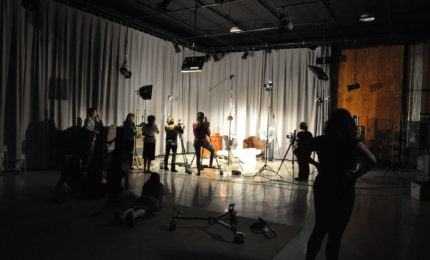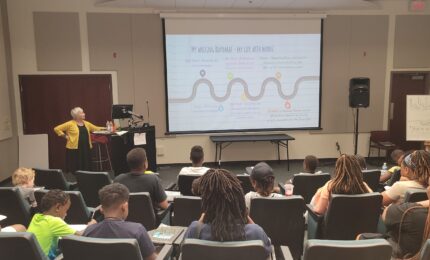Production Jobs Deep Dive: Locations
By Grace Smith | February 23, 2024
One of the very first things a filmmaker needs when they are producing a project is a place to shoot it, and that’s where the Locations Department comes in.
The Locations Department is headed by the Locations Manager, and on a micro budget project, they might be the entire department. On bigger budget projects, however, a locations manager could have a team of location assistants, scouts, runners, and security personnel reporting to them.
Kelley Hiatt, who began working as the St. Louis Film Office Manager in October of 2023, spent most of her career working in the locations department for projects in Chicago, New York, and Los Angeles.

“[T]here are two stages of Location Managing and each require a unique set of skills,” Hiatt says. “During pre-production a Location Manager is focused on working with the Director, Producer and Production Designer to find the perfect location to film the scene. This is the scouting phase. Several factors go into the selection of a location other than just the “look” of the location…Other variables may be the timing of the shoot, if the location is available for filming, the location fee, or if there are any issues with the immediate surroundings.”
But once production begins, the role of the onset location manager shifts. Hiatt went on, “It is the job of the onset Location Manager to know every detail of the shoot. From sunrise when trucks and trailers pull in, to sundown when the trash is taken away. I often equate location days to putting on a wedding, every day.”
When asked what qualities someone in the locations department needs, Michele Fatturi, a Location Manager based in Kansas City, said, “You have to be good at pitching a project. Most of the work is talking to people you have never met before and getting them to want to help you and the project you are working on. And it really takes those first two minutes of conversation to get them interested and onboard in some capacity or closing the door for you.”
Ron Durham, a Location Manager based in St. Louis, added, “We are a liaison between the production and the location owner, so you have to be able to look out for the best interests of both parties. You have to be genuine; you have to care about the location owners and also take care of the production.”
Durham also pointed out that many location owners have no idea what to expect when a film crew takes over their business or home, so it’s important to prepare them as best as you can. “People get a little overwhelmed when they witness production, they never know how much goes into it. You try to prep them for it, but if they have no experience with film production it can be a little daunting.”

Hiatt also emphasized the importance of flexibility for a Location Manager, “[Y]ou must be able to take something that is on paper, that makes logistical sense and is easily imagined in your head, go find it in the real world, secure it for filming and then do your best to line up the pieces that make up a production puzzle, so they fit just right! Once that happens, inevitably an unforeseen issue will arise and now one of the pieces no longer fits. This is when you must pivot, problem solve and make a new version of the puzzle work in an efficient manor without jeopardizing the integrity of the production.”
When asked what their favorite part of working in Locations is, Hiatt and Durham both said they love scouting.
“It’s kind of like a treasure hunt,” Hiatt said. “It’s an incredible feeling when you find the perfect location and it all comes together!” Durham agreed, saying that he loves being in the field.
Fatturi told us, “I am truly passionate about Locations, so I honestly like pretty much everything about it. But I am especially fond of the very initial work on a project, reading the script and thinking through what locations would better tell that story, create the right atmosphere and then putting together my game plan for how and where to search for the right places. It’s just very exciting.”

Of course, the job isn’t all fun and games, as Durham told us when asked for his advice for people interested in working in locations. “When you are starting out in locations, you’re gonna have the not fun jobs…you might be putting up directional signs, posting parking restrictions, doing trash sweeps.” He expressed how important it is to have a willingness to do what needs to be done, even if it isn’t the most glamorous job.
“People tend to assume that working in the locations department is just going around finding cool places. There is so much more to the work,” Fatturi said. “You have to factor in a lot for each potential location (noise, availability of potential support areas, power, parking, permitting, local regulations, etc), the whole production depends on you locking down locations on time for pre-production to start. Lots of negotiation with public and private entities, lots of paperwork and a lot of personality management as you will deal with all sorts of people and will have to constantly win them over. It is a lot of pressure. So I’d say, try to understand all the moving parts so you can do a good job and build a good reputation.”
Hiatt also pointed out that the Locations Department is a great place to learn about other departments on a film set. “You have direct interaction with every single department from the Director to the Security Guards. Every department comes to you with what they need to make their day from a logistics standpoint. It gives you an inside look at what every department does and the challenges they face to do their job. My advice would be to keep your eyes open for interesting places and take note of areas that surround them. A location is only good if you can, actually, film there. The worst thing a Location Manager can do is show a Director or Production Designer a location, they fall in love with it and in the end it is not film friendly.”
If you are interested in working in the Locations Department, please reach out to the Film Office for more information.
If you already work in the Locations Department, make sure you are listed in the Production Services Directory on mofilm.org.
If you are a property owner and interested working with a production at your property, please list it in the Location Gallery on mofilm.org.



